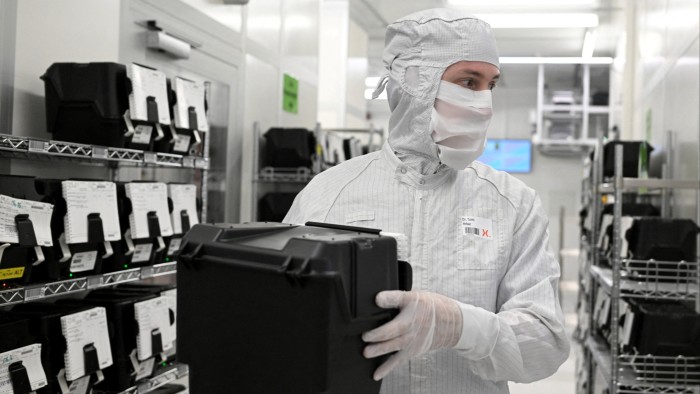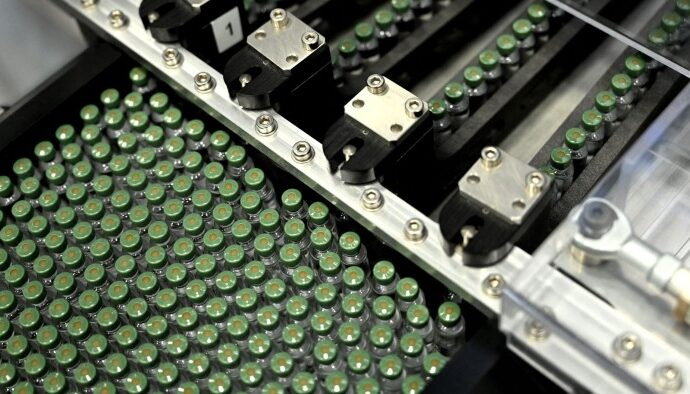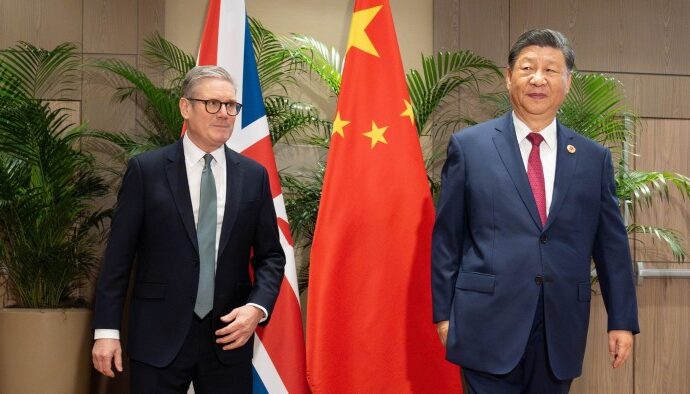
Unlock the Editor’s Digest for free
Roula Khalaf, Editor of the FT, selects her favourite stories in this weekly newsletter.
The Dutch government seized control of chipmaker Nexperia after Washington warned the company would not be removed from its export control list if its Chinese chief executive Zhang Xuezheng remained in charge, according to court filings.
The economy ministry this month removed Zhang — who was also the controlling shareholder of the chipmaker — and entered the escalating fight for technological dominance between Washington and Beijing.
Nexperia is an important supplier of specialised but low-margin chips for Europe’s auto industry. It was sold to a Chinese consortium in 2017 before being bought by Wingtech.
The enterprise chamber of the Amsterdam court of appeal published the proceedings between the Dutch economy ministry and Wingtech, the Chinese owner of Nexperia, on Tuesday.
It revealed that US officials told the Dutch in June that a plan to ringfence its European operations from Chinese ones was moving too slowly.
Last month, the US commerce department in effect gave Nexperia an ultimatum when it said that curbs on Wingtech under the US entity list designation would also apply to its Dutch subsidiary.
The so-called entity list is used to impose controls on groups seen as acting against US national security or foreign policy interests. It means US companies must get a licence to sell to them, which is hard to obtain, in effect limiting access to advanced technology.
According to minutes of a meeting between the Dutch foreign ministry and the US Bureau of International Security and Nonproliferation, the US was concerned that “the fact that the company’s CEO is still the same Chinese owner is problematic”.
“It is almost certain that the CEO will have to be replaced to qualify for the exemption from the entity list.”
Washington last year added Wingtech to the entity list, saying it was helping China acquire sensitive semiconductor manufacturing technology.
On September 30, the US expanded the list to include subsidiaries of companies, meaning Nexperia would be subject to the same restrictions by the end of November as a result of its Wingtech ownership.
On the same day Vincent Karremans, the Dutch economy minister, used the emergency Goods Availability Act, a 70-year-old law, for the first time to “preserve [Nexperia’s] business and means of production”, according to the court documents.
“The Dutch government could understand perfectly well that rule [on subsidiaries] was going to create real problems for them,” said Reva Goujon, a director at Rhodium Group, a consultancy.
Nijmegen-based Nexperia began discussions with the Dutch government in early 2024 about “obtaining recognition” as a Dutch company to counter “negative” public perceptions about its Chinese ownership, the filing says.
The documents show that Zhang resisted the carve-out and had tightened his control over the company since Wingtech acquired it in 2019.
Last December, the economy ministry told Nexperia it must ensure it has “operational independence from its listed shareholder, has an effective and coherent security and information policy both regarding cyber security as well as insider threats, and finally has some form of internal supervision which provides for effective protection of these aspects”.
On March 28, the company responded, saying: “A clear/unconditional guarantee in relation to the Dutch/European identity/presence cannot be given, since this would restrict the shareholder’s control rights too much” and would “limit the company’s flexibility in relation to its business needs/plans in an unreasonable manner”.
In early September Zhang removed the bank authorisations of three of the company’s financial officers, prompting concerns from European members of Nexperia’s executive board about governance, the documents show. The Dutch government cited “serious governance shortcomings” when it announced its seizure of the company on Sunday.
Wingtech could try to challenge the seizure of the company, but the goods availability act gives the Dutch government broad leeway to intervene in the running of a business, said Goujon of Rhodium Group.
Nexperia said on Tuesday it was “confident that a solution will be found” to the US restrictions.
It added that the Chinese Ministry of Commerce on October 4 prohibited Nexperia China and its subcontractors from exporting specific finished components and sub-assemblies manufactured in China. “Nexperia is actively engaging with the Chinese authorities to obtain an exemption from these restrictions,” it said.


